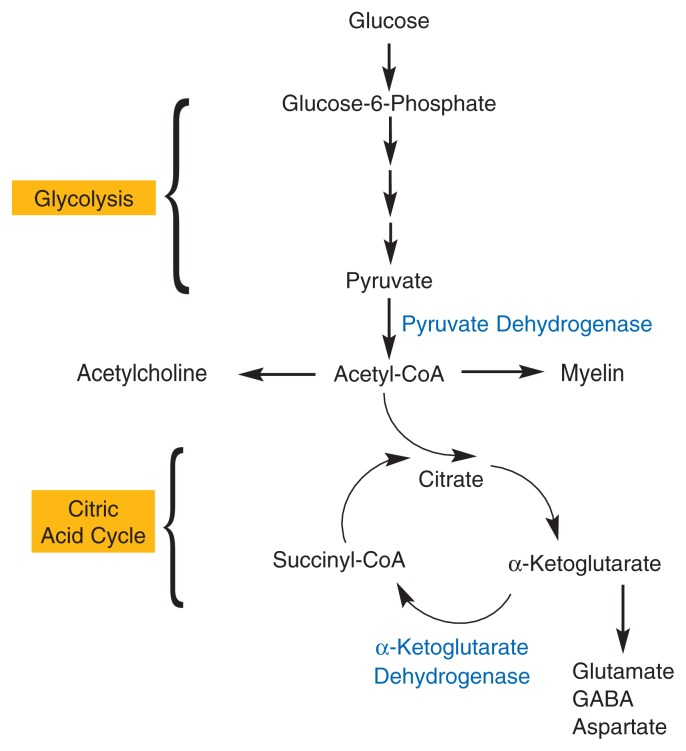Figure 3.
The thiamine-dependent enzymes pyruvate dehydrogenase (PDH) and α-ketoglutarate dehydrogenase (α–KGDH) participate in the metabolism of glucose through two biochemical reactions, glycolysis and the citric acid cycle. The main function of these two sets of reactions is to generate adenosine triphosphate (ATP), which provides energy for the cells. Reduced PDH and α–KGDH activity resulting from thiamine deficiency can lead to less ATP synthesis, which in turn can contribute to cell damage and even cell death. In addition, PDH is needed to produce the neurotransmitter acetylcholine and to generate myelin, a compound that forms a sheath around the extensions (i.e., axons) of many neurons, thereby ensuring proper neuronal functioning. The citric acid cycle and α–KGDH play a role in maintaining the levels of the neurotransmitters glutamate, gamma-aminobutyric acid (GABA), and aspartate, as well as in protein synthesis.

